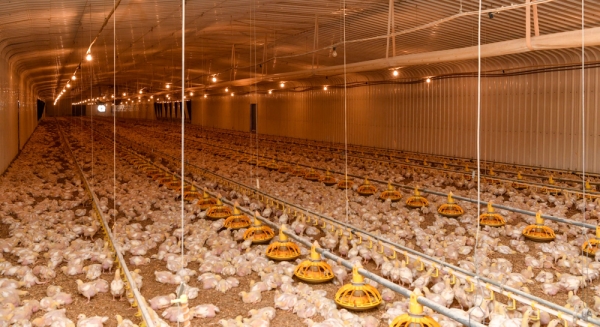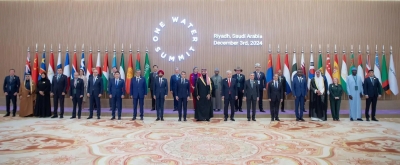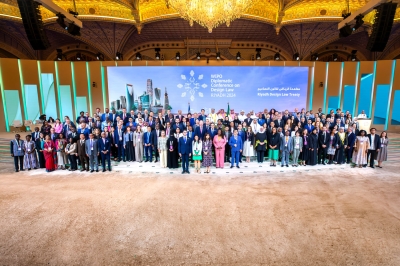

Poultry Farming in the Kingdom of Saudi Arabia is one of the activities supported by the Saudi Ministry of Environment, Water, and Agriculture. The Kingdom ranks third globally in the consumption of poultry meat and products and is one of the main producers of poultry in the Middle East and Africa. The country produces about 1.3 billion birds and 5.4 billion eggs annually.
According to the Statistical Yearbook 2022, the Kingdom's self-sufficiency rate in broiler production reached sixty-eight percent, and in egg production 117 percent. The Kingdom is among the highest consumers of poultry meat worldwide, with per capita consumption reaching approximately fifty kg annually.
Funding poultry farming projects in Saudi Arabia
The Agricultural Development Fund, a government credit institution specializing in financing agricultural activities across the Kingdom, funds various projects in the poultry sector to contribute to food security and the preservation of natural resources. It encourages the use of modern technologies to increase support and achieve a higher self-sufficiency rate for broiler projects. The fund supports farmers and encourages them to use cages to enhance production processes.
The poultry projects funded by the Agricultural Development Fund include seven types of projects: broiler chicken projects, which are dedicated to fattening broiler chickens; broiler breeder projects, which produce fertilized eggs for broiler chickens; layer chicken projects, which focus on table egg production; hatchery projects, which incubate and hatch fertilized eggs; and layer breeder projects, which produce fertilized eggs for layer chickens. Additionally, there are grandparent projects that produce fertilized eggs resulting in broiler or layer breeders.
The Agricultural Development Fund, through the new national agricultural strategy for 2021-2025, aims to increase broiler chicken production by approximately 415,000 t. In 2020, production was 947,000 t, and it is expected to rise to 1,362,000 t by 2025. This growth is intended to boost self-sufficiency to 80 percent by 2025, up from over 68 percent at the end of 2022.
The loans provided by the Agricultural Development Fund for the poultry sector constitute 25 percent of the total number of agricultural projects approved by the fund, with a total of 1,321 loans amounting to SAR5.4 billion. These loans represent 35 percent of the total value of loans provided for agricultural projects. In 2020, the fund provided about seventeen loans for poultry projects worth SAR377 million, while in 2019, there were about thirty-seven projects worth SAR419 million.
Broiler production cycle in Saudi Arabia
In the Kingdom, the broiler chicken production cycle lasts thirty-two days. During this period, a feed mixture containing 23 percent crude protein and 3,200 calories is used. In the growing chick stage, when chicks are between four and six weeks old, a mixture containing 20 percent crude protein and 3,200 calories is given. In the final stage, the feed mixture has about 18 percent crude protein and 3,200 calories. After this cycle, farmers can transfer the broiler chickens to processing plants for preparation and delivery to consumers.
The Middle East Poultry Expo
The Ministry of Environment, Water, and Agriculture organized the second edition of the Middle East Poultry Expo in 2023. This specialized poultry industry exhibition featured 207 exhibitors from thirty-seven countries and attracted ten thousand visitors from fifty-four countries. The Kingdom is one of the strongest poultry producers in the Middle East and Africa and ranks third globally in poultry meat and product consumption.
The third edition of the Middle East Poultry Expo kicked off on May 13, 2024, at the Riyadh International Convention and Exhibition Center for three days under the theme "Maximizing Value and Reducing Costs: Value Engineering in the Poultry Industry". The expo saw over 75 percent international participation, featuring one hundred global experts and three hundred specialized companies from forty countries to explore investment opportunities in the poultry sector in the Kingdom, aiming to achieve the national food security strategy.
SGAP system
The Ministry of Environment, Water, and Agriculture has established the Saudi Good Agricultural Practices (S.G.A.P) system, which includes standards for poultry farms. Key standards include providing potable water, specifying the food system, conducting inspections and monitoring, bird collection and transportation processes, procedures for culling infected birds, medicinal treatments, egg incubation, poultry housing care, waste monitoring, pest control programs, and proper care, along with overseeing farm workers.
Licensing of poultry farming projects in Saudi Arabia
By the end of 2021, the number of operational and construction licenses in the poultry sector reached 275, including 178 operational licenses and ninety-seven construction licenses. The licensed projects included 119 broiler production projects and pigeon farming, twenty-six egg production projects, and twelve broiler parent stock farming and hatchery projects, with a production capacity of 480.5 million chicks annually.
By the end of 2022, the number of poultry projects had reached 415 broiler projects, 144 layer projects, forty broiler parent stock projects, and four layer parent stock projects.
Related quizzes
Related articles

